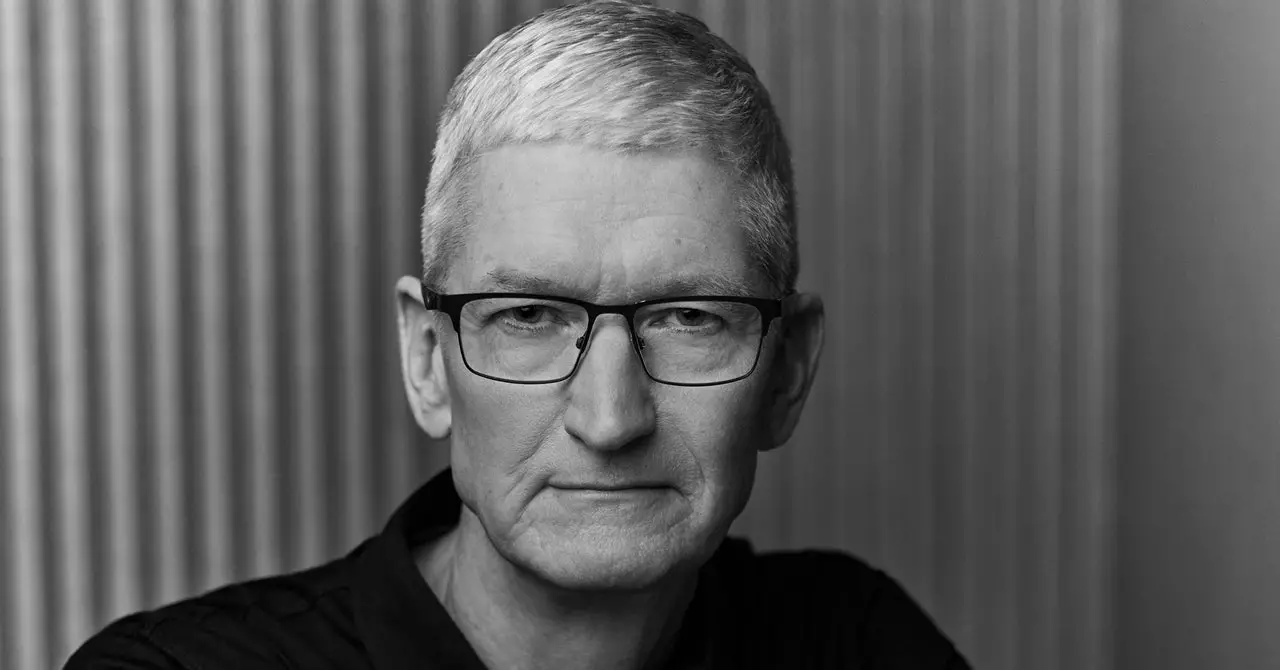Apple’s vast campus, known as Apple Park, stands as a testament to innovation and ambition. However, it also reflects the echelons of leadership that define the tech giant. On my latest visit, I couldn’t help but recall a previous tour guided by Tim Cook himself, the company’s CEO. The construction dust from my last visit has now given way to immaculate landscaping, bringing life and vibrancy to the once barren grounds. As Cook guided me through the sprawling complex, he projected a vision of longevity, describing the campus as a “100-year decision.” Now, in an era of intense technological evolution, it feels ever more pertinent to see how this philosophy extends to Apple’s foray into artificial intelligence—a move that could solidify or jeopardize its future.
Tim Cook and Apple’s Strategic Timing
Fast forward to the present, and tensions are palpable within the tech industry. The competitive landscape is shifting, with tech behemoths either on the verge of dominance or facing significant stumbling blocks. In this critical juncture, Tim Cook’s strategic foresight is under the spotlight as Apple gears up to launch its AI initiative, dubbed Apple Intelligence. Critics have suggested that Apple has entered this arena late, observing rival companies garner attention and accolades for their advancements in generative AI. While competitors have dazzled audiences with cutting-edge chatbots and AI applications, Apple had ambitions focused elsewhere—specifically, an augmented reality headset that drew both intrigue and skepticism.
Despite the external pressure, Cook approaches AI with the composure and thoughtfulness reminiscent of Apple’s founder, Steve Jobs. Historically, Apple has not rushed to be the first to market. Instead, the company has often perfected innovations, focusing on creating products that combine technology with user-friendly experiences. This strategy is exemplified by the iPod, which, while not the first MP3 player, revolutionized how music was consumed by offering an intuitive design and seamless integration with iTunes.
Cook emphasizes that Apple’s journey toward harnessing the power of AI has been a long time in the making. By recruiting talents like John Giannandrea from Google back in 2018, Cook has been quietly laying the groundwork for a robust AI framework. Instead of entering a crowded market with half-baked ideas, Apple has shifted its focus towards developing machine-learning capabilities that enhance its software across devices.
Recently, Apple announced an update that aims to inject AI functionalities into its entire product line. Moreover, a noteworthy partnership with OpenAI suggests that Apple is committed to providing users with advanced AI tools like ChatGPT, which further establishes its relevance in the ongoing AI race. Demonstrations of tools for generating personalized emojis or an AI picture generator called “Image Playground” illustrate Apple’s intent to make AI accessible and fun rather than overly complex and intimidating.
One of the defining features of Apple’s approach to AI is its unwavering commitment to user privacy. In an age where personal data has become a commodity, Apple stands out by shifting AI computations to the user’s device whenever possible. Cook reassures users that their information will remain secure, significantly differentiating Apple from other companies that rely heavily on cloud processing for AI capabilities. This focus on safeguarding personal data is not just a moral position; it’s a core element of the Apple brand that compels consumer loyalty.
Furthermore, Cook’s skill in managing perceptions is noteworthy. During our recent conversation, he reminded me of the success stories—products like the Apple Watch and custom silicon chips that reshaped computing experiences. Yet, he is also adept at sidestepping discussions around less favorable decisions, like the ill-fated smart-car program. Cook’s demeanor, honed through years of leadership, enables him to frame narratives in a manner that encourages admiration of Apple’s resilience while deflecting scrutiny.
Anticipating the Response
As Apple prepares to unveil its AI initiatives, the ultimate verdict will certainly come from its users. After nearly 40 years of observing Apple’s evolution, one lesson stands out: should the initial AI offerings fall short, Cook is likely to reframe any setbacks as opportunities for growth. Future keynote events will undoubtedly showcase new improvements, reinforcing his mantra of delivering “the best Apple Intelligence we’ve ever built.”
As the world waits with bated breath to see how Apple will redefine its role in the AI landscape, one thing remains clear: Tim Cook embodies a steady hand steering a ship through turbulent waters, never revealing the storm beneath the surface. The future is unwritten, but Apple’s commitment to innovation, privacy, and user experience serves as a strong foundation as it leaps into uncharted territory.

